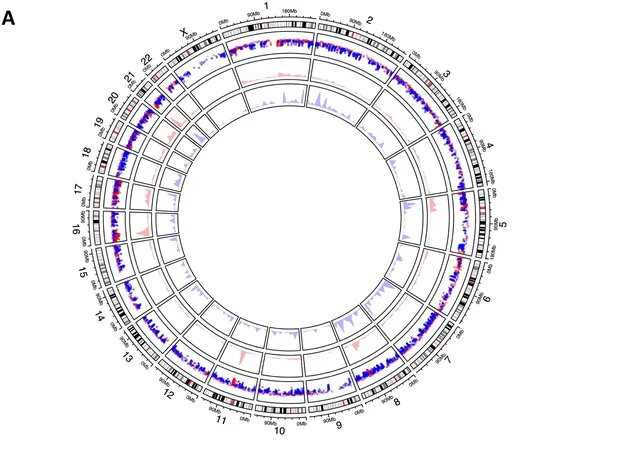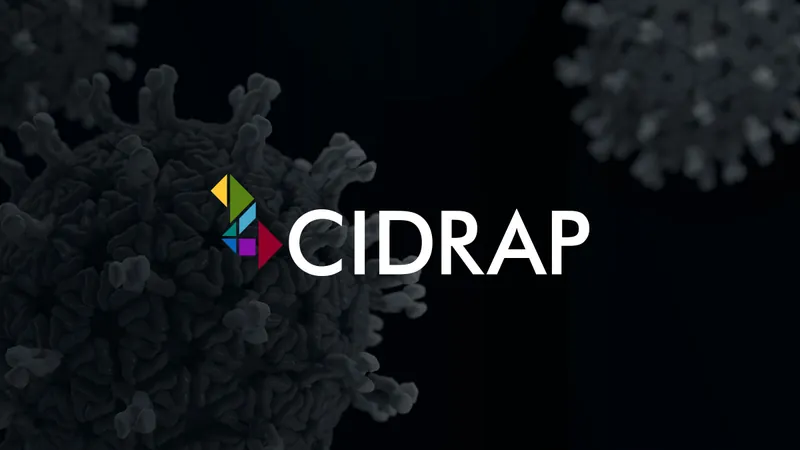
Breakthrough Urine Test Detects Bladder Cancer through Tumor DNA Analysis
2025-09-17
Author: Daniel
Revolutionary Urine Test Unveils Hidden Signs of Bladder Cancer
Researchers at the University of Birmingham's Bladder Cancer Research Center have unveiled a groundbreaking method to detect bladder cancer by analyzing chemical changes in DNA found in urine samples. This innovative approach focuses on epigenetic changes, specifically methylation, which could serve as key indicators of the disease.
Published in the journal Clinical Epigenetics, this research comes at a pivotal time as existing urine tests, like the GALEAS Bladder test, already offer impressive accuracy in detection. However, most current methodologies only examine small DNA segments, limiting their capacity.
Harnessing Methylation Patterns for Better Detection
The new technique delves deeper, examining comprehensive methylation changes across the entire DNA strand in urine, marking the first-ever effort to map these patterns using advanced DNA sequencing technology. Remarkably, the researchers successfully differentiated cancerous DNA from healthy samples, even at low tumor DNA levels.
This advancement could lead to a new generation of urine tests that not only detect bladder cancer but also reveal additional characteristics of tumor DNA—potentially enhancing the insights provided by existing tests.
Expert Insights on Future Implications
Professor Rik Bryan, leading the research at the University of Birmingham, expressed enthusiasm about the findings, stating, "These intriguing results raise many more questions about the mechanics of bladder tumor development. This long-read sequencing could allow us to detect early signs that precede tumor formation, paving the way for innovative urine tests. Yet, there's much work ahead."
Dr. Anshita Goel, a Bioinformatics Research Fellow, added, "Our proof-of-concept study hints at a future where a simple, non-invasive urine test could eclipse current clinical methods. Utilizing an accessible urine sample and cost-effective sequencing technology, we can detect elusive epigenetic signatures of bladder cancer, heralding a new era of quicker, gentler, and more patient-friendly disease detection."
AI on the Horizon for Enhanced Diagnosis
The extensive data produced from this new approach is paving the way for the development of artificial intelligence systems designed to classify patients based on their DNA methylation profiles. The ultimate goal? To guide patients toward the most effective treatment paths, revolutionizing the way bladder cancer is diagnosed and managed in clinical settings.



 Brasil (PT)
Brasil (PT)
 Canada (EN)
Canada (EN)
 Chile (ES)
Chile (ES)
 Česko (CS)
Česko (CS)
 대한민국 (KO)
대한민국 (KO)
 España (ES)
España (ES)
 France (FR)
France (FR)
 Hong Kong (EN)
Hong Kong (EN)
 Italia (IT)
Italia (IT)
 日本 (JA)
日本 (JA)
 Magyarország (HU)
Magyarország (HU)
 Norge (NO)
Norge (NO)
 Polska (PL)
Polska (PL)
 Schweiz (DE)
Schweiz (DE)
 Singapore (EN)
Singapore (EN)
 Sverige (SV)
Sverige (SV)
 Suomi (FI)
Suomi (FI)
 Türkiye (TR)
Türkiye (TR)
 الإمارات العربية المتحدة (AR)
الإمارات العربية المتحدة (AR)